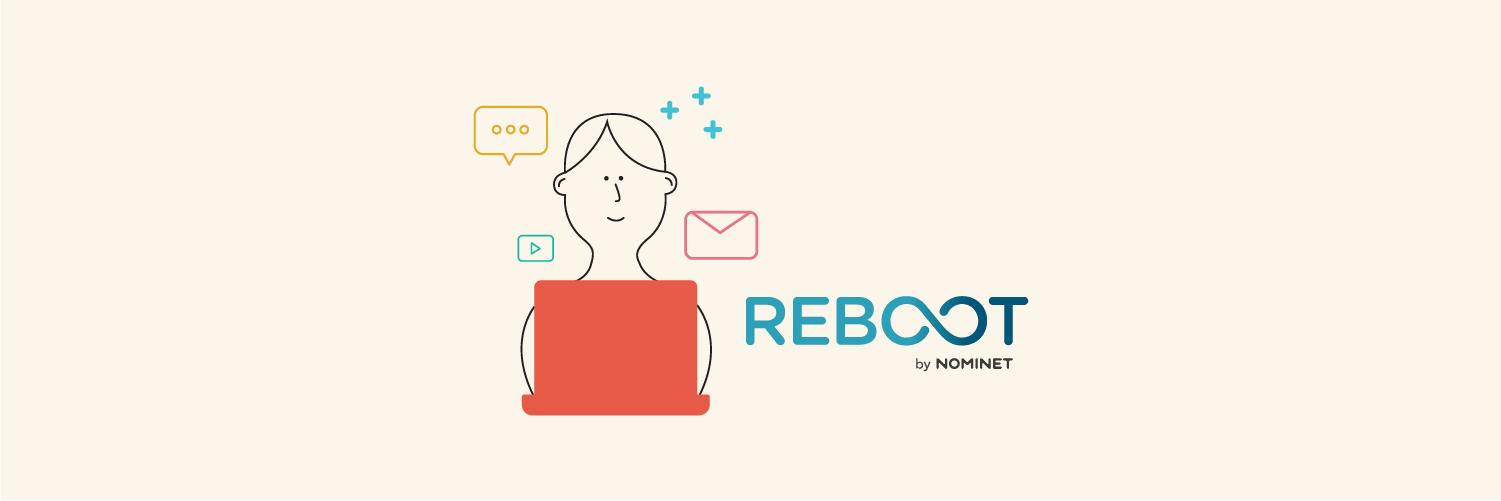An important question for any company committed to making a social as well as business impact is how we assess if our activities and investments are truly achieving that.
Answering this question forms one aspect of my work at Nominet. We are the registry for the .UK namespace, an organisation committed to operating as a ‘profit with a purpose’ business; we’ve invested over £49m into ‘tech for good’ initiatives to date and are determined to support those at risk of being left behind as our nation marches towards a digital future.
For the past two years our Public Benefit activity has been handled in-house with a specific mission to make a lasting, positive impact on the lives of young people. This is the generation that our future depends on, after all, and they face challenges growing up in a digital world. We work to reach them by focusing on a variety of emerging social issues, from a lack of access to digital skills and opportunities to coping with mental health issues.
The phrase ‘lasting positive impact’ is important because we believe in making sustainable changes, not simply sticking plasters onto problems. We achieve this by employing an approach that starts with careful research into specific issues to identify the root of the problem before we design and deliver programmes best positioned to make the biggest difference. And then we measure our progress via an annual Social Impact Report. The report for FY20 has recently been released and shares figures that I think we can be proud of.
When deciding on our approach to measuring social impact and how the projects we fund would report back to us, we found that due to the sheer breadth of impact areas we work on – which means different programmes and projects working in very different ways in very different settings – a flexible approach is required.
As a result, we took inspiration from Comic Relief’s reporting, where funded projects use indicators relevant to their area of specialism to report back against an overall theory of change for the funding scheme. As such, the figures, measures and outputs within our report are all developed by our partners with our support, and that of an independent external MEL (Monitoring, Evaluation & Learning) partner, InFocus, and are based on best practice. It’s worth noting here too that some of our projects are ongoing or funded in the period, so outcomes are not yet available. We look forward to seeing these when ready. Of course, by far and away the most important aspect is generating insights that lead to sustainable and substantial positive impact in the field of tech for good and digital social impact and for which we can build on the successes and work on improving where there might be gaps.
I am pleased to say that as a result of this process, over the past twelve months we can report an impact on 720,000 young people via £1.7m in grants to projects and programmes. This is through a mixture of our own initiatives, such as providing access to digital skills and opportunities through our This is How podcast series, and working with established partners, including leading mental health charities like Samaritans, as well as youth organisations like the Scouts and the Micro:bit Foundation.
The range of work we have planned and delivered is covered in detail on our website and touched on in the report. For example, we have launched a new Digital Citizenship Badge with the Scouts, released Micro:bit classroom to help get young people improve their digital skills including coding, and funded key organisations tackling online harm, like the Internet Watch Foundation and the National Crime Agency, among many other activities.
The arrival of the coronavirus – and the changes it wrought to our lives – has tested our capacities and capabilities in Public Benefit in new ways. While we are proponents of the design-led, considered approach to funding, the pandemic demanded we react swiftly to changing circumstances. If we wanted to truly make a difference and meet some of the gaping inequalities that had moved from inconvenient to potentially life-threatening, we had to act fast. The most pressing issue was digital exclusion: being ‘locked down’ at home left the 1.9m households without access to the internet cut off and isolated, without access to medicines, food, advice or support.
Our first action was, in partnership with Snook, to secure zero-rate access from smartphones to the websites that were key for staying safe, such as the NHS site. We were conscious that those with limited funds or data may be denied access to essential information or the fast-changing advice. This move was achieved with the collaboration of UK Government and major mobile network operators.
Next, we developed our involvement in FutureDotNow to play our part in addressing digital exclusion with DevicesDotNow (DDN), instigating a national drive to source digital devices and connectivity, and get them to those in need. This initiative secured over 11,000 devices in the months from lockdown to the end of July, and this important work is continuing to be built on via Reboot by Nominet. This new online platform provides a playbook full of guidance and support for community groups – schools and local charities – that are keen to (or already hard at work to) source unused devices and ‘reboot’ them to help close the digital divide and secure access to online learning opportunities and information.
New projects like Reboot sit alongside long-established programmes as we look ahead now to next year’s Public Benefit activity. We will continue to work with mental health charities and leading organisations tackling online harms, helping to keep young people safe online. We will continue to fund organisations that are arming school children with digital knowhow and develop materials to help teenagers be ready to join a digital workforce. We also continue our support of the Micro:bit Foundation and help to get young minds fascinated by the possibilities afforded by coding.
Importantly, we will continue to monitor changing circumstances and be ready to react with speed and efficiency when needed. Our digital world changes quickly and we need to help catch those who may fall through the cracks, especially as the coronavirus looks set to disrupt our lives for some time.
Thank you to the Nominet team and all the partners we work closely with for another year of great work. Together, let’s focus on the task ahead. We must rise to the challenges of a post-Covid world, identify the emerging social issues and digital inequalities, and do all we can to help young people meet a digital future successfully and securely. The pandemic may have hit them hardest when it comes to education, opportunities and future prospects. Now is the time to give them the support to help them secure a brighter future.
Read the Social Impact Report for FY20 on our website.


